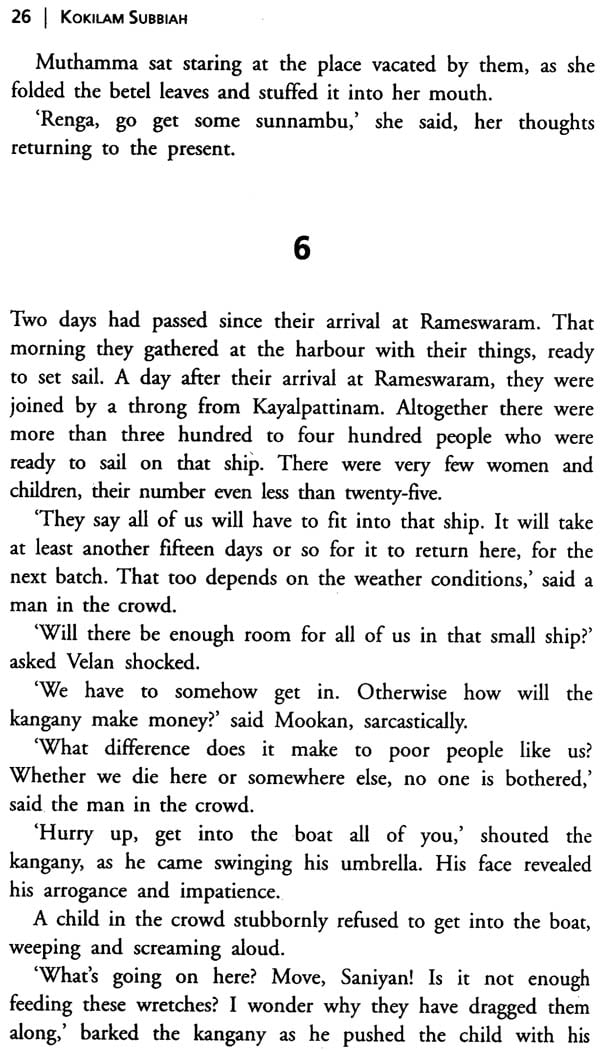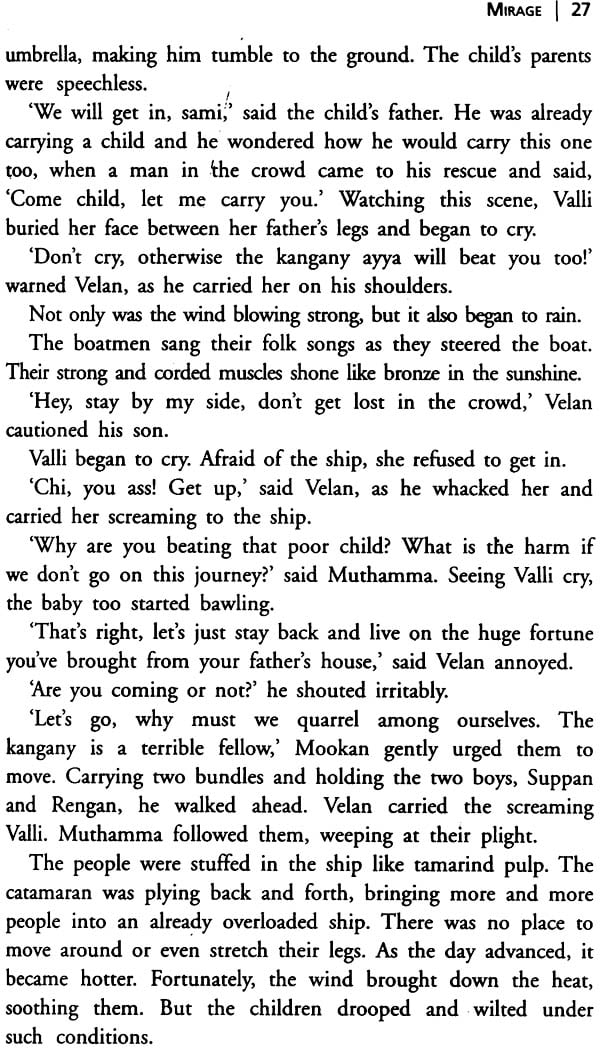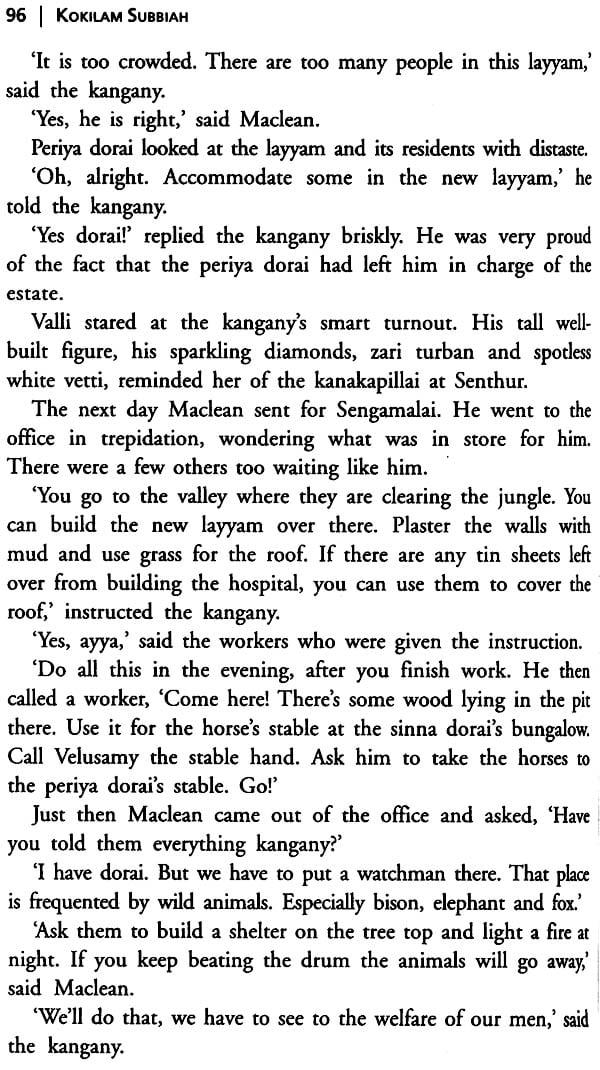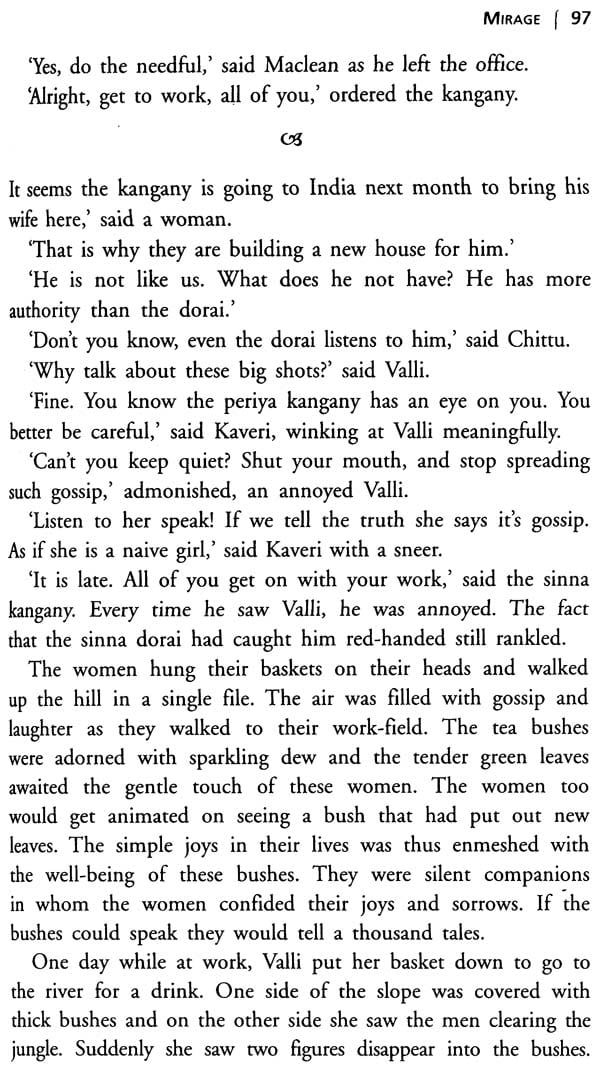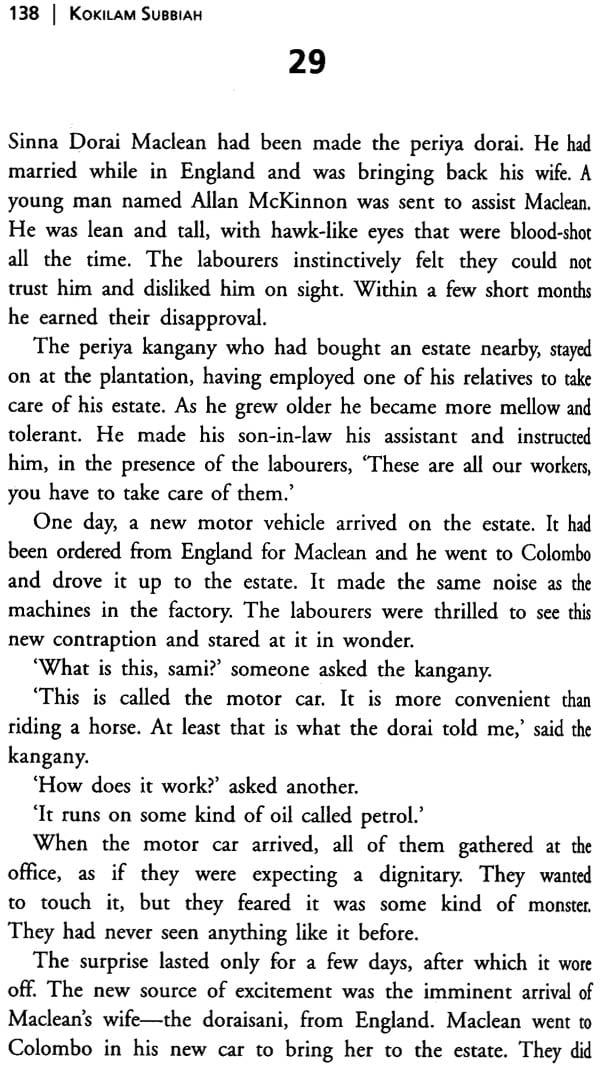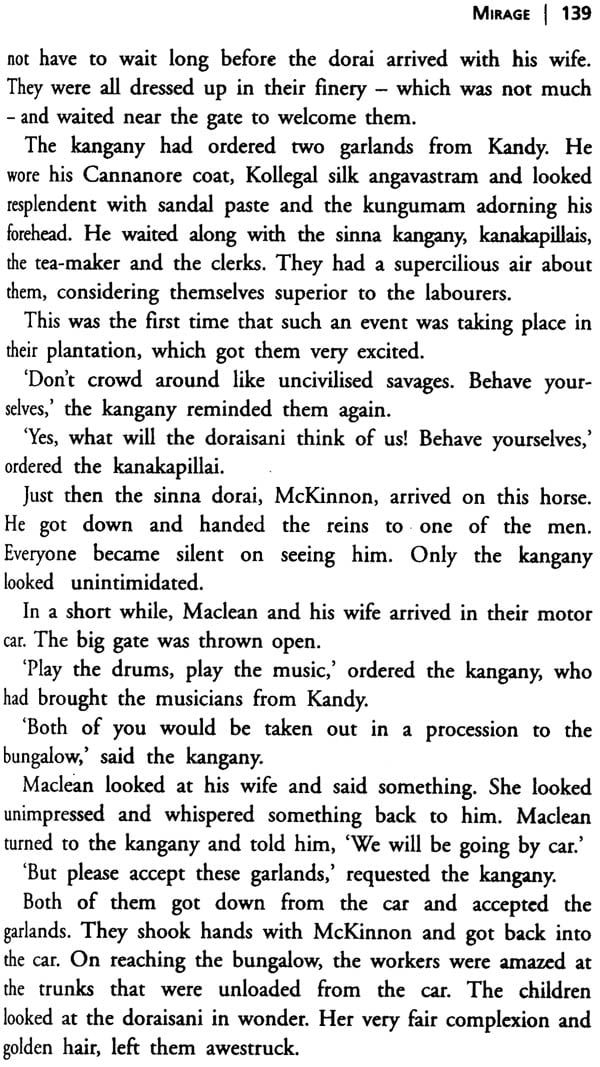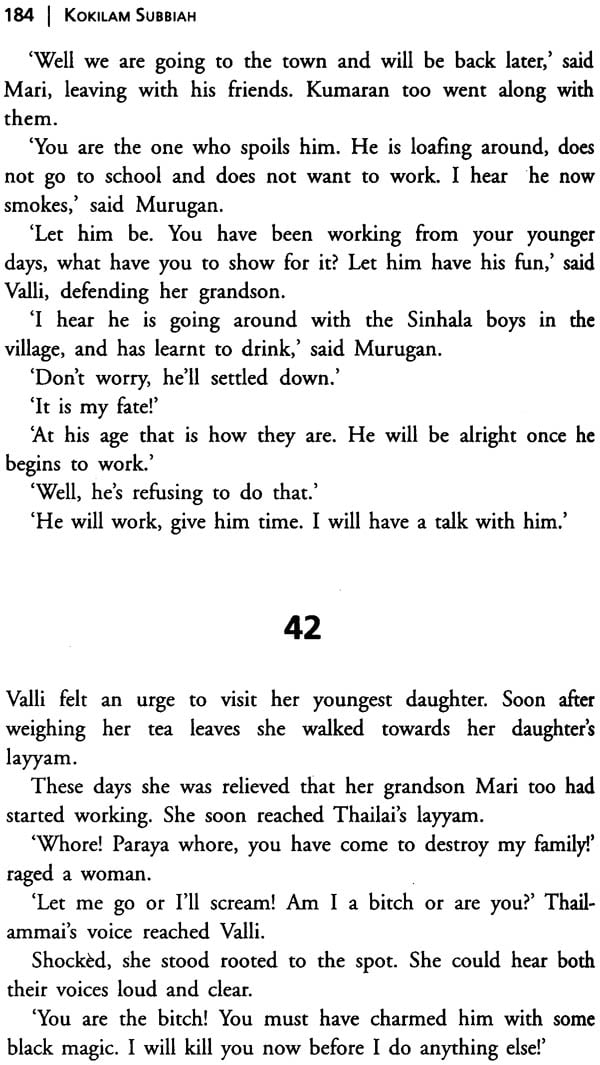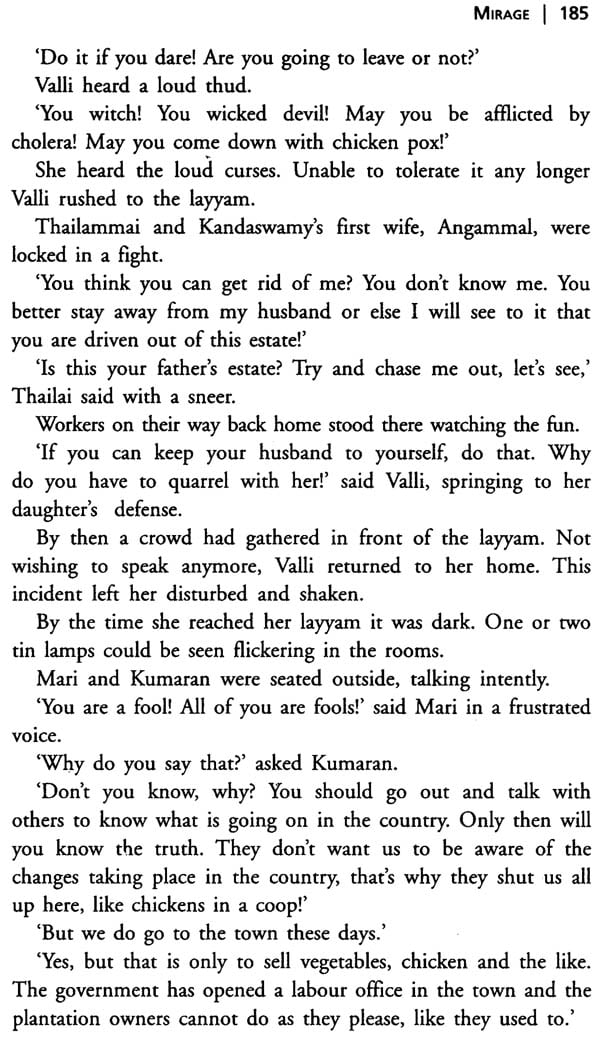
Mirage
Book Specification
| Item Code: | NAI369 |
| Author: | Kokilam Subbiah |
| Publisher: | Orient Blackswan Pvt. Ltd. |
| Language: | English |
| Edition: | 2009 |
| ISBN: | 9788125030706 |
| Pages: | 210 |
| Cover: | Paperback |
| Other Details | 8.5 inch X 5.5 inch |
| Weight | 250 gm |
Book Description
About the Book
Set in the tea plantations of Sri Lanka, Mirage traces the lives of Valli and her family, migrants from a village in Tamil Nadu in search of a better livelihood. The novel depicts the lives of indentured labourers working in these plantations and explores the social structure and the norms of plantation life-an arena defined by economic and sexual exploitation.
Through Valli's world, we gain insight into the complex social relationships - between husband and wife, parent and child, worker and supervisor, friend and neighbour - in these remote plantations.
, translated from the Tamil Thoorathu Pacchai, records human dignity in the face of human brutality. The novel chronicles a hitherto ignored piece of human history.
Preface
Thoorathu Pachai, the Tamil original of Mirage was published in the year 1964-it has taken another forty years for me to recreate this book in English. This book is an attempt to bring to the fore the unchronicled, unvoiced lives of the indentured labourers from India working on the tea plantations of Sri Lanka-in that sense it is social history in the form of fiction.
As a convent-educated daughter of a civil servant in Sri Lanka, I knew nothing about life in the tea plantations. But marriage (my husband was the Member of Parliament representing the plantation workers) brought me in direct contact with their tragic lives. I gradually became deeply interested in their work and welfare. I organised a women's movement and in a bid to bring global attention to their plight, I took two of these workers to speak at an international women's conference in Germany.
At Prague, Czechslovakia, I met Dr. Kamil Zvelebil, a renowned Indologist, sitting at a dusty desk and poring over a Tamil lexicon. During the communist regime he was not allowed to go to India; he was so thrilled to meet me because I was a Tamil. I sent him books and translations on my return to India and thereby a friendship developed, that has lasted over fifty years. I told him about my work on the plantations and about the women workers. He said I must write their story, whatever it takes.
I did not believe I was a writer, though I had written articles for newspapers. I did not have the confidence to write their story, which was not an easy one to begin with. But on Mr. Zvelebil's insistence I eventually undertook the task. I spoke to these workers, old and young, traveled extensively and sought to understand their life and history. My interaction also brought me in touch with the kanganys (supervisors) and the white superintendents who had enormous power over their lives. Most of the incidents narrated in this book are culled from real-life stories and are not figments of the imagination.
This book is a homage to the stoic lives of thousands of indentured labourers who gave their lives to these plantations. I dedicate this book to my friend and mentor, Dr. Zvelebil, without whose encouragement this book would not have been written. It was also he who gave me the name of the publisher I should go to Tamil Puthakalayam. The owner and editor Sri Kn Muthiah took one look at it and decided to publish it. This was in 1964. I would also like to thank Sri Chidambara Raghunathan, writer and novelist, for his editorial support to Thooratbu Pachai.
The world needs to hear the story of these hard-working, exploited, uncared-for people-and hence the novel.
Contents
| Preface | ix |
| Mirage | 1 |
| Glossary | 198 |
